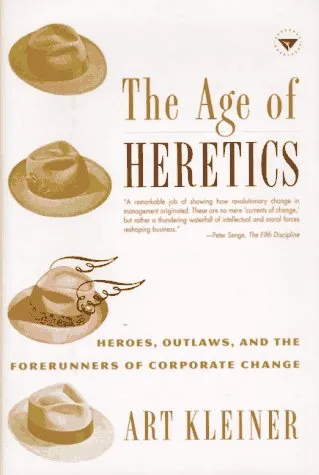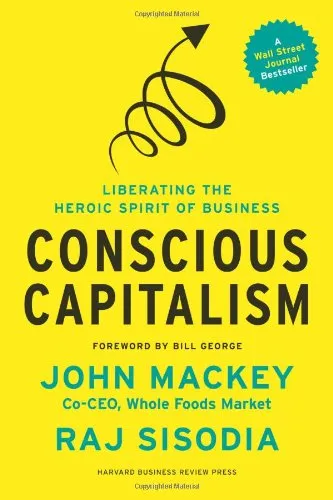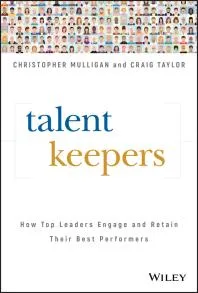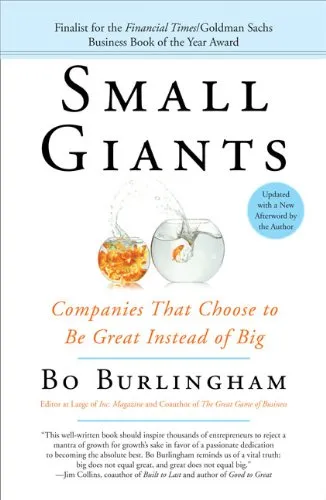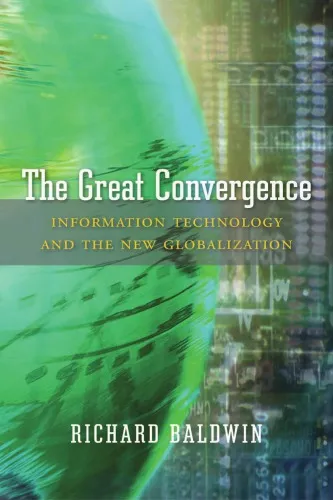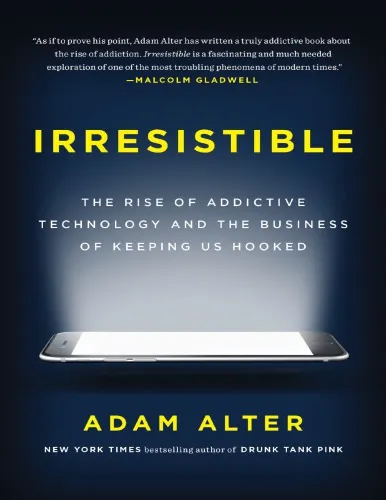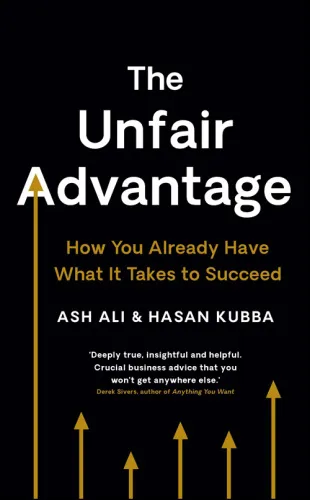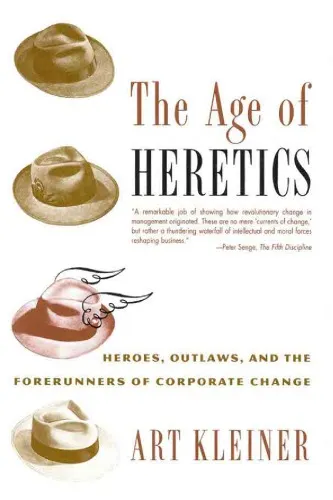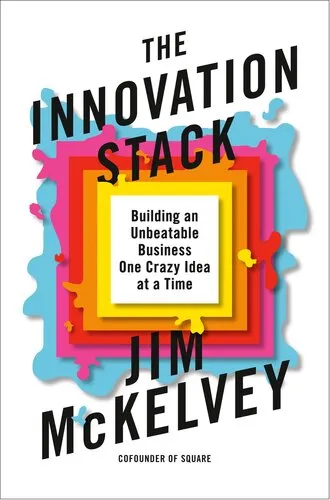The Age of Heretics: Heroes, Outlaws, and the Forerunners of Corporate Change
4.5
Reviews from our users

You Can Ask your questions from this book's AI after Login
Each download or ask from book AI costs 2 points. To earn more free points, please visit the Points Guide Page and complete some valuable actions.Related Refrences:
Introduction to "The Age of Heretics: Heroes, Outlaws, and the Forerunners of Corporate Change"
"The Age of Heretics: Heroes, Outlaws, and the Forerunners of Corporate Change" by Art Kleiner is an insightful exploration of the mavericks, rebels, and thought leaders who reshaped the corporate and organizational world as we know it today. This book delves into the bold and controversial individuals who challenged conventional wisdom within corporations and introduced groundbreaking ideas that changed the trajectories of entire industries. By combining historical narratives, investigative storytelling, and thoughtful analysis, Kleiner brings to life the fascinating stories of these heretics whose unconventional thinking paved the way for a reimagined corporate culture and ethos.
At its core, this book is not just a history of corporate innovation but a celebration of those who dared to think differently and question the status quo. It provides a vivid chronicle of men and women who were often ridiculed, dismissed, or sidelined yet remained steadfast in their convictions, ultimately influencing significant organizational changes across the decades. By highlighting their stories, "The Age of Heretics" reveals the underpinnings of modern corporate behavior and sheds light on the philosophies, struggles, and triumphs that contribute to transformational leadership and change management.
Detailed Summary of the Book
The narrative of "The Age of Heretics" unfolds across eras of corporate evolution, examining pivotal moments of revolt, transformation, and innovation within businesses. Art Kleiner provides a historical timeline of major corporate heretics, beginning from the 1950s and extending into the late 20th century, highlighting their influence on corporate strategy, organizational development, and leadership methodologies. These "heretics" are not your everyday corporate leaders — they are individuals who disrupted stagnant processes and ideas, advocating for purpose-driven work, human-centered leadership, and ethical decision-making in business.
The book covers a wide variety of topics, including the rise of organizational behavior studies, systems thinking, and the counter-cultural movements of the 1960s and 1970s — all of which have reverberations in today's corporate environment. It also explores the dilemmas faced by these heretics, the conflicts that arose between visionaries and traditionalists, and the long-term impacts of their philosophies. Whether it is the influence of activists on social responsibility or the birth of consulting disciplines rooted in psychology and systems theory, Kleiner demonstrates how each of these mavericks contributed to the transformation of management practices and organizational dynamics.
Key Takeaways
- Innovation often stems from dissent and the willingness to challenge norms.
- Leadership is not just about maintaining order but inspiring transformation and purpose.
- Understanding the history of corporate strategy unveils the complex layers of modern management.
- Systems thinking and holistic approaches to problem-solving are critical to sustainable organizational change.
- Bold ideas may initially face resistance but can lead to lasting cultural and organizational shifts.
Famous Quotes from the Book
"Heretics may not always win the battle, but they shape the arena where future struggles are fought."
"To truly change the system, you must first see yourself as part of it."
"Great leaders aren’t the ones who avoid conflict; they’re the ones who embrace it and transform it."
Why This Book Matters
"The Age of Heretics" is not just a book for business leaders or corporate strategists — it is an essential read for anyone seeking to understand the forces that shape our professional and societal landscapes. It matters because it shines a spotlight on the individuals who refused to conform and instead chose to innovate, even at great personal and professional costs. These stories of courage and conviction provide inspiration for modern readers, especially in an era where adaptability and innovation are critical to thriving in a rapidly shifting global economy.
Furthermore, the book contextualizes the evolution of management and leadership practices, bridging the gap between the past and the present. It delves into the human side of corporate change, showing that organizations are not just structures but reflections of the people who lead them. By understanding the legacy of heretics, readers can better appreciate the principles behind effective leadership, the importance of long-term vision, and the value of ethical decision-making in a corporate context.
Free Direct Download
You Can Download this book after Login
Accessing books through legal platforms and public libraries not only supports the rights of authors and publishers but also contributes to the sustainability of reading culture. Before downloading, please take a moment to consider these options.
Find this book on other platforms:
WorldCat helps you find books in libraries worldwide.
See ratings, reviews, and discussions on Goodreads.
Find and buy rare or used books on AbeBooks.
1339
بازدید4.5
امتیاز0
نظر98%
رضایتReviews:
4.5
Based on 0 users review
Questions & Answers
Ask questions about this book or help others by answering
No questions yet. Be the first to ask!
